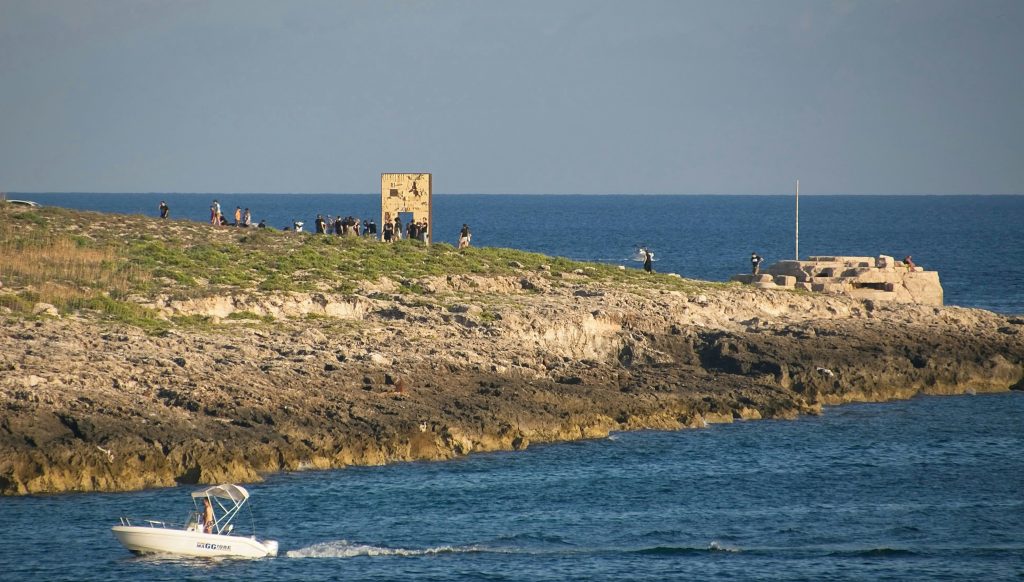Un Pacte à Lampedusa

Remédier à l’échec sur les questions migratoires doit être la priorité de ce début de législature européenne et la mission principale de l’Italie. En effet, au cours des dernières années, l’absence d’une politique migratoire européenne efficace a provoqué des clivages profonds et eu des effets dramatiques. Elle a fait de la Méditerranée un cimetière, une honte qui restera à jamais dans l’histoire parmi les pages les plus déshonorantes qui soient. La question migratoire a provoqué des séismes de forte intensité, du Brexit à l’émergence des droites xénophobes et populistes un peu partout, l’Italie de Salvini en tête.
Mais pourquoi donc une politique migratoire européenne à même de concilier respect des Droits de l’Homme et gestion contrôlée des flux aux frontières ne s’est pas concrétisée ? Pourquoi, quatre ans après les pics de 2015, en sommes-nous toujours au carrefour entre « fermeture des ports » et « portes grandes ouvertes » ? Si aucunes réponses ne sont apportées à ces questions, le débat restera chaotique et peu concluant. L’absence de solutions ne profitera qu’aux populistes et aux xénophobes qui spéculent sur les peurs et se nourrissent de simplifications. L’initiative, inacceptable, d’user du terme « protection de notre mode de vie » pour le Commissaire européen en charge des questions migratoires, montre bien à quel point les raccourcis sont répandus
Je lance ici une proposition en mesure, à mon avis, de doter l’UE d’une vraie politique migratoire. Les faits montrent bien que des politiques nationales ne sont pas efficaces face à un phénomène d’une telle intensité et d’une telle durée. C’est seulement au niveau européen que des directives décisives nécessaires à un réel changement pourront voir le jour.
Mais qu’est-ce qui n’a pas fonctionné et comment changer cela ? L’UE a répondu à la crise avec des instruments dépassés et elle n’a pas trouvé la force de les modifier, par égoïsme et à cause des vetos brandis par la Hongrie et d’autres États membres. Le Traité de Dublin – selon lequel le pays de première entrée supporte tout le poids des arrivées – est un dispositif créé il y a plusieurs décennies en fonction d’autres scénarios, précédent l’instabilité et les mécanismes de mobilité qui se sont mis en place suite aux printemps arabes.
Pour changer cela il aurait fallu l’unanimité, et les efforts italiens pour convaincre les plus réticents n’ont pas suffi. Il est paradoxal, d’ailleurs, que ces réfractaires, en premier lieu la Hongrie, soient ensuite devenus des alliés de l’Italie de Salvini.
S’il faut reconnaître les progrès réalisés l’an dernier par le Parlement européen pour dépasser, au moins formellement, la règle de l’unanimité pour modifier le règlement de Dublin, cela n’a pas suffi ; une dramatisation institutionnelle est notamment nécessaire pour sortir de cette impasse. Ainsi, il faut trouver le courage de sortir temporairement des Traités de l’UE. Un choix radical mais nécessaire. Un choix qui n’est toutefois pas inédit puisque cela s’est fait au moins à deux reprises : pour la signature de l’accord de Schengen et pour la création du Fiscal compact qui a eu un rôle clef dans la sortie de la crise financière et auquel le Royaume-Uni et la République Tchèque n’ont pas participé.
Nous avons besoin d’un nouveau traité qui rassemblera les pays européens qui le souhaitent. À la condition que quiconque le signe accepte la règle de la majorité et assume sa propre part de responsabilité. Ce nouveau Traité – dont la signature à Lampedusa serait un acte politique et symbolique très fort – devrait remplacer celui de Dublin, supprimant, entre autre, la responsabilité à charge exclusive du pays de première entrée.
Le Traité de Lampedusa devrait contenir des instruments nouveaux pour organiser l’accueil et la répartition égales entre les pays signataires, créant ainsi des automatismes pour conjurer les enchères au rabais auxquelles nous avons assisté, au cours de ces années passées, à chaque arrivée d’un navire. La France en prend vingt, l’Espagne quinze, la Pologne zéro et tout ça avec un cynisme et une hypocrisie insupportables. Ces négociations froides et effrayantes ont été la pire image de l’Europe ! Nous devons arrêter cela et faire place à des mécanismes automatiques de répartition gérés par une Autorité centrale européenne, dotée de pouvoirs adaptés et autorisée à appliquer des critères humains, comme le regroupement familial.
La centralisation rendra possible une gestion différenciée des flux de demandeurs d’asile par rapport à ceux des migrants économiques ; et, en même temps, permettra de promouvoir les devoirs d’accueil, en commençant par l’apprentissage de la langue locale. Parmi d’autres chapitres il faudra évoquer le contrôle des frontières externes de l’UE, le rapport avec les pays tiers, et la coordination des opérations de sauvetage en mer.
Sur ce point, l’expérience montre que c’est une tâche qui incombe principalement aux États ou aux entités infra-étatiques, comme ce fut le cas pour Mare Nostrum, la mission militaire humanitaire italienne qui a sauvé des vies humaines et conduit en même temps à l’arrestation de tant de trafiquants.
L’intolérable criminalisation des ONG qui travaillent en Méditerranée est contradictoire.
On les attaque parce qu’ils accomplissent, comme ils peuvent, des tâches qui devraient être effectuées par un État qui décide de s’abstenir.
Et la Hongrie ? Ceux qui opposent leur veto serait, dans cette situation, les grands gagnants ? N’est-ce pas là une façon paradoxale de rendre service à Orban ? Je réponds avec une référence au principe de réalisme. La Hongrie, même si elle acceptait d’accueillire les migrants, en raison de sa petite taille, se verrait attribuer des quotas symboliques. Ce ne serait pas décisif. Décisive, en revanche, la Hongrie l’a été ces dernières années pour bloquer tout progrès collectif. Un peu comme la Grande-Bretagne l’a fait sur les thèmes économiques et monétaires, à la différence que Londres a accepté que les autres aillent de l’avant avec le Fonds européen de stabilité financière de 2012.
Il faut maintenant du courage. L’Italie doit être au premier rang : qui mieux que nous et l’Allemagne ? Le plus grand pays de premières arrivées et le plus grand pays de destinations finales.
Conte et Merkel devraient préparer une proposition à partager avec la France et l’Espagne et puis aux autres. La Commission devra être impliquée dans cette initiative surtout car les instruments qui en dériveront devront lui être attachés.
Une initiative de ce type aura néanmoins besoin du soutien de la société civile et en particulier des jeunes. Pour cela nous lancerons le projet Traité de Lampedusa à Cesenatico où s’ouvre aujourd’hui la cinquième année académique de la Scuola di Politiche. Une initiative fondée justement pour donner à des jeunes italiens des bourses d’étude qui les aideront à aimer une politique juste et à connaître les institutions.
Avec le nouveau gouvernement italien, cette proposition n’est plus une utopie. Elle peut devenir le volte-face européen sur les migrations. La honte de la Méditerranée comme mer de la mort restera indélébile. Le futur, par contre, peut être différent.




